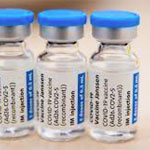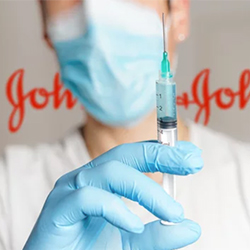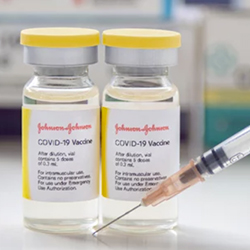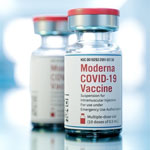By Marie Rosenthal, MS
The FDA’s Vaccines and Related Biological Products Advisory Committee (VRBPAC) voted to recommend approval of the COVID-19 vaccine by Janssen Pharmaceuticals, a Johnson & Johnson (J&J) company, for people 18 years and older at least two months after a single-dose primary vaccination.

More than 14 million people in the United States would be eligible for the booster if the FDA follows the recommendation and expands the emergency use authorization (EUA) to allow the boosters.
Although the vote was unanimous (19-0), the committee members once again complained about the paucity of data in some areas—the same complaint was heard at the Oct. 14 meeting to consider the Moderna request for a booster dose for its vaccine—especially regarding serious adverse events, particularly thrombotic events.
“For me, it comes down to a risk?benefit equation as to whether to enable those individuals who need or desire the vaccine to have access to it under these circumstances,” said Eric Rubin, MD, an adjunct professor in the Department of Immunology at the Harvard T.H. Chan School of Public Health, in Boston, who added that although the data were “immature” and “lacking in some areas,” they did support the indication during a pandemic. Dr. Rubin is also the editor-in-chief of tThe New England Journal of Medicine.
The vote was based on findings from two clinical trials, including the phase 3 ENSEMBLE 2 study, that evaluated a booster dose of the J&J COVID-19 vaccine given two months after the single-shot one, as well as a large real-world evidence study.
Company representatives also presented data that supported the increased potential of a booster when administered at six months. Phase 3 clinical data and real-world data both demonstrated the J&J single-shot COVID-19 vaccine was strong and long-lasting.
“While the efficacy has been stable, it has been consistent, but we think the data today will highlight the opportunity that we have to further increase efficacy and protection with the booster dose,” explained Penny Heaton, MD, the global therapeutic area head, vaccines, Janssen Research & Development, J&J.
“The single dose had 74% efficacy against severe disease,” she said, “and 70% efficacy against all disease, and that efficacy has persisted for six months with no dropoff.”
Dr. Heaton explained that antibody titers peak later and have been effective against multiple variant strains, and persist eight to nine months past vaccination. In addition, the cell-mediated response was strong.
However, the phase 3 ENSEMBLE 2 study found a booster dose at two months provided 94% protection against moderate to severe/critical COVID-19 in the United States (95% CI, 58%-100%) and 100% protection (95% CI, 33%-100%) against severe/critical COVID-19, at least 14 days post-booster vaccination, researchers said.
Rachel Zhang, MD, a medical officer who evaluates the applications at the Center for Biologics Evaluation and Research (CBER), FDA, said the improved efficacy from a second dose was limited by “the small numbers of COVID-19 cases and wide confidence intervals around efficacy estimates.” In addition, she warned that the FDA was unable to independently verify the Janssen data given time constraints.
Also submitted were findings from a phase 1/2a study evaluating a booster dose given six months after the first shot, which showed antibody levels increased ninefold one week after the booster, and continued to climb to 12-fold higher four weeks after the booster.
“We want to provide optimal protection against COVID, and we know that a booster dose will do that,” Dr. Zhang said. “It will increase efficacy against severe disease. It will increase efficacy against all symptomatic COVID, and it will increase the breadth of the immune response against variants.”
The vaccine, when given as a booster or primary dose, was generally well tolerated, according to the company. Again, the FDA medical officers noted that the sample size was small (17 participants for the six-month interval) and of limited duration.
There was a long discussion about whether this should be considered a second dose of the primary series for this one-dose vaccine or a booster, but the committee was told that because the original EUA was for a single dose, this would be considered a booster.
However, Peter Marks, MD, PhD, the director of CBER, said he would pass that unofficial recommendation along to the agency.
The FDA does not have to follow the recommendation of the advisory committee, but it usually does so.




